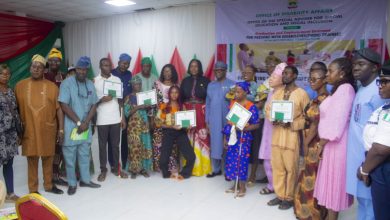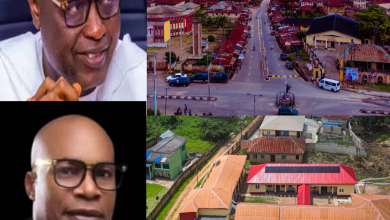PROFESSOR AZEEZ OLANIYAN ADVOCATES FEDERALISM TO COUNTER SEPARATIST MOVEMENTS IN NIGERIA
...delivers 11th Inaugural Lecture at Federal University,Oye Ekiti.
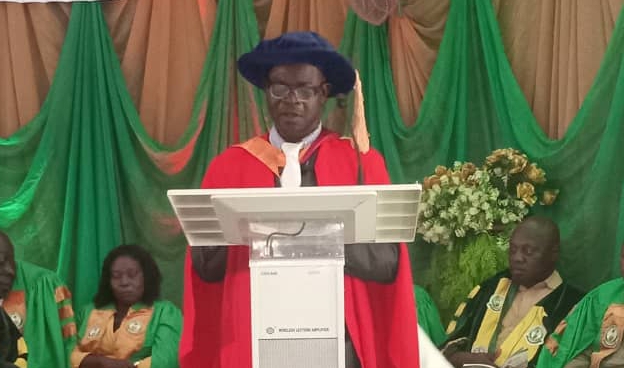
Renowned scholar, Professor of Political Science, and esteemed Security expert, Prof. Azeez Olusola Olaniyan, currently the Dean of the Faculty of Social Science at the Federal University Oye Ekiti, has put forth a compelling proposal for mitigating the challenges posed by separatist movements in Nigeria through the prism of true federalism.
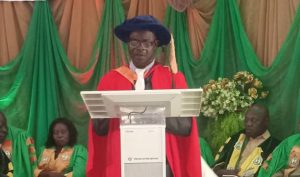
Addressing a captivated audience during the 11th Inaugural Lecture at the Federal University of Oye Ekiti (FOUYE), Professor Olaniyan delved into the subject of “Nigeria and the Undying Spirit of Separatism”. He underscored the urgency of fulfilling the social contract and embracing comprehensive inclusivity, equitable justice, and a true federal structure as key elements in quelling the currents of dissent and secessionists.
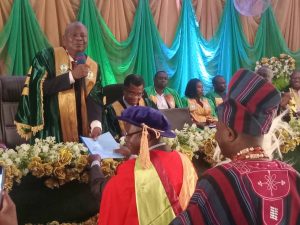
Professor Olaniyan attributed the persistent spirit of separatism in Nigeria to a complex interplay of factors, including the nation’s diverse ethnic composition, cultural multiplicity, large populace, varying administrative models, and the contentious political and constitutional amalgamation of the Northern and Southern Protectorates in 1914 by Lord Lugard.
PICTOGRAM OF THE EVENT.
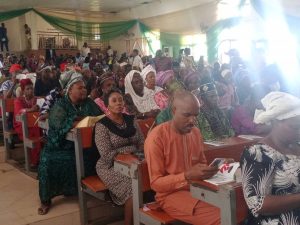
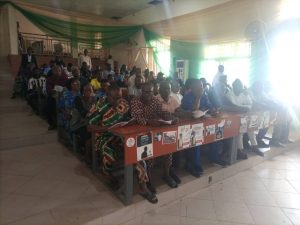
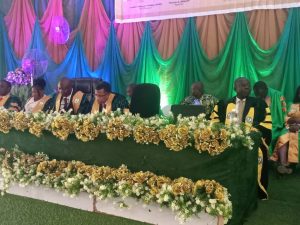
He pointed out that leadership shortcomings, fragility of the state, insecurity, ineffective negotiation strategies, as well as the amalgamation’s grouping of divergent nationalities by colonial powers, contributed to the recurring calls for secession.
“Except for a few cases, Nigeria’s states are products of coercion, a melding together of different groups compelled by greater forces, both convergent and divergent.”
Professor Olaniyan emphasized that the nation’s history has witnessed the tension between centripetal and centrifugal forces, leading to a number of secessions globally. Instances such as Belgium’s separation from the Northern Netherlands in 1830, Sweden’s split from Norway in 1905, and the dissolution of the Soviet Union into 15 states in 1991 serve as examples.
Drawing parallels with the USA, Professor Olaniyan noted that even nations that have remained united have faced their own centrifugal challenges at various junctures.
Examining separatist movements from pre-independence through the post-colonial era to the present fourth republic, Professor Olaniyan highlighted various groups and figures, including Gani Adams’ Oodua Peoples’ Congress (OPC), Ralph Uwazuruike’s MASSOB, Niger Delta militants, Boko Haram insurgents, Nnamdi Kanu’s Indigenous People of Biafra (IPOB), and Prof. Banji Akintoye and Sunday Igboho’s Oodua Nation movement.
“From these examples, it is evident that the spirit of separatism thrives in different parts of Nigeria, espoused and enacted by varying segments of society. This spirit has been enduring in Nigeria.”
Hailing from Ogotun Ekiti in Ekiti state, Professor Olaniyan underscored the importance of proactive, responsive governance, and the role of conscientious citizens in curbing separatist sentiments. He emphasized the equal distribution of resources, citizen welfare, and security as the pillars of true federalism, which can mitigate calls for secession.
Professor Olaniyan asserted that separatist inclinations intensify when particular groups feel marginalized and their well-being is neglected.
“Through these agitations, we see that the spirit of separatism is present across Nigeria, voiced and embodied by diverse segments of society. The spirit of separatism has consistently been part of Nigeria’s narrative.”
With a plethora of accolades, over 80 publications, and a robust presence on the global academic circuit, Professor Azeez Olaniyan has established himself as a distinguished authority. He is not only a credit to his alma mater but a beacon of knowledge for generations to come.
The event was graced by dignitaries including former Ekiti state Governor Dr. Kayode Fayemi, the Oloye of Oye Ekiti, the Ologotun of Ogotun Ekiti, Bishop Felix Ajakaye, Hon. Sunday Adunmo, Oska Ayeleso, EKHA members representing Oye I & 2, undergraduate and postgraduate students of the University, and numerous other attendees.


